Detailed Programs
DAY 1
28 August 2018
Tuesday
Registration 9.30-10.00
Inauguration
Chief Guest: Shantha Sinha
Affiliation: Chairperson of the National Commission for Protection of Child Rights
Conditions, Behaviour and Consequnces of Bathing Practices of Rural Women in India
Speaker: Meghna Mukherjee
Affiliation: VikasAnvesh Foundation, Pune
Current status and barriers to digital inclusion in rural NER
Speaker: Mrinalinee Khanikar
Affiliation: Rastriya Grameen Vikas Nidhi, Guwahati
Extent of Digital Inclusion in Telangana
Speaker: Kishore Kumar
Affiliation: Tata Trusts, Hyderabad
Progress towards digital inclusion in rural Gudibande, Chakballapur
Speaker: Kiran Sen
Affiliation: Collaborator, VikasAnvesh Foundation, Pune
Digital Financial inclusion: overview of shortcomings
Speaker: VP Gulati
Affiliation: Tata Trusts, Hyderabad
Experience of promoting digital literacy among women
Speaker: AFARM team
Affiliation: AFARM, Pune
Synthesis of studies on Digital Inclusion from various States
Speaker: Sanjiv Phansalkar
Affiliation: VikasAnvesh Foundation, Pune
Lunch 13:30 – 14:30
Parallel sessions
- Parallel 1: Changing baskets of consumption in rural areas
Chairperson: Roda Mehta
Time: 14:30 - 17:00
Venue: Hall 1 - Parallel 2: Social and economic impacts of water harvesting structures
Chairperson: Tushaar Shah (International Water Research Institute India)
Time: 14:30-17:00
Venue: Hall 2 - Parallel 3: Political Economy of Labour and Migration in India
Chairperson: Sanjiv Phansalkar (VikasAnvesh Foundation, Pune)
Time: 14:30 -17:00
Venue: Seminar Hall
Synthesis Paper-Field based study
Speaker: Archana Chandola
Affiliation: VikasAnvesh Foundation, Pune
Changing Rural Markets: Experiences in Rural Marketing
Speaker: Benjamin Matthew
Affiliation: Head of Strategy, Partner, MART Global Management Solutions LLP
Experiences from field studies: crucial contextual findings
Speaker: Parthasarthy Banerjee, Nimisha Katakee, Suresh Sharma
Affiliation: Collaborator, VikasAnvesh Foundation, Pune
Perspective on Rural consumers:Experiences from Rural Market Research
Speaker: Hemant Mehta
Affiliation: Managing Director, at Kantar IMRB and Chief Strategy Officer, Kantar South Asia.
Rural Markets, Consumers and Livelihoods
Speaker: SK Mohanta
Affiliation: Director, Ecociate Consultants Pvt. Ltd
Consumption Patterns and Scope of Enterprises
Speaker: Manoj Mishra
Affiliation: Collaborator, VikasAnvesh Foundation, Pune
Enhancing water, food and income securiy through farm ponds
Speaker: Nirmalya Choudhury
Affiliation: Tata Institute of Social Sciences
Impact of water harvesting structures on lives and livelihoods of farmers in Chikkaballapura district, Karnataka
Speaker: Kiran Kumar Sen
Affiliation: Wipro Sustainability Seeding Fellow
Reviving India’s tanks to achieve drought resilience
Speaker: Manisha Shah
Affiliation: IWMI-TATA Project
Findings from the multi-location impact assessment of water-harvesting structures
Speaker: Meghna Mukharjee
Affiliation: VikasAnvesh Foundation, Pune
Working with the Maharashtra Government in Water Sector
Speaker: Pooja Prasad
Affiliation: Centre for Technology Alternatives for Rural Areas (CTARA), Indian Institute of Technology Bombay
Introducing the researchers
Speaker: Sanjiv Phansalkar
Affiliation: Director, Vikasanvesh Foundation
Super-exploitation of Adivasi migrant workers
Speaker: Priyanka Jain and Amrita Sharma
Settlements of the un-sedentary
Speaker: Nivedita Jayaram, Sangeeth Sugathan, Priyanka Jain
Death in divine value chains
Speaker: Priyanka Jain, Pavitra Mohan, Rajendra Sharma and Jibitesh Sahu
No City for Migrant Women: Gendered Burdens of Exclusionary Urban Governance and Discriminatory Labour Markets
Speaker: Nivedita Jayaram and Sangeeth Sugathan
Concluding Remarks
Speaker: Sanjiv Phansalkar
Poster Presentations
Time: 17:00 – 17:30
Venue: Foyer
Gems of Purest Ray Serene
(About 15 of the 22 outstanding social workers profiled in the book “Gems of Purest Ray Serene” will be gracing the occasion)
DAY 2
29 August 2018
Wednesday
Does the Development Discourse Ignore Women as Individuals?
Speaker: Shushma Iyengar
Affiliation: Kutch Mahila Vikas Sangathan, Bhuj
Tea 10:30 – 10:45
Parallel sessions
- Parallel 4: Gaps in opportunity sets available to rural youth
compared to urban counterparts
Chairperson: Subhash Deshpande (Jnanaprabodhini, Pune)
Moderator : Sanjiv Phansalkar (VikasAnvesh Foundation, Pune)
Time: 10:45 - 13:15
Venue: Seminar Hall - Parallel 5: Health Impacts of Headload carrying
and other Domestic Chores of Women
Chairperson: Suresh Kumar
(Former Director Institute of Palliative Medicine, Calicut)
Time: 10:45 - 13:15
Venue: Hall 1 - Parallel 6: Incentives and Motivation for
Women Taking Leadership Roles in Collectives
Chairperson: Debi Prasad Mishra (Retr. Professor, IRMA)
Moderator : Anup Dhar (Professor, Ambedkar University, Delhi)
Time: 10:45 - 13:15
Venue: Hall 2
Opportunity Gaps in Rural and Urban India: two districts of Assam
Speaker: Nimisha Barkotoki
Affiliation: Magic Bus, Guwahati
The inequality in opportunities for rural and urban youth in Rajasthan
Speaker: Jaipal Singh Kaushik
Affiliation: Collaborator, VikasAnvesh Foundation, Pune
Opportunity gaps experienced by rural youth in Telangana
Speaker: Archana Londhe
Affiliation: Collaborator, VikasAnvesh Foundation, Pune
Synthesis of Studies on Opportunity Gaps from Various States
Speaker: Sanjiv Phansalkar
Affiliation: VikasAnvesh Foundation, Pune
Experiences of women of Sundarban
Speaker: Suma Mujumdar
Affiliation: Research fellow, The Researcher
Field study from rural Telangana
Speaker: Spurthi Kolipaka
Affiliation: Independant researcher
Quantitative Study from Udaipur
Speaker: Abhijeet Jadhav
Affiliation: Senior researcher, VikasAnvesh Foundation, Pune
Roll the wheel to drive away the drudgery
Speaker: Executive Officer
Affiliation: Nilkamal Plastics, Mumbai
Bio-gas and impact on rural women
Speaker: Executive Officer
Affiliation: Bio-Systema
On the relevance of a study on leadership in collectives
Speaker: Debiprasad Mishra
Affiliation: Ex-Professor, Institute of Rural Management Anand
Understanding leadership in Collectives
Speaker: Bikalp Chamola
Affiliation: VikasAnvesh Foundation, Pune
Beyond Leadership: Affective Affinities and the Eka Nari Sanghathan
Speaker: Bhavya Chitrashi
Affiliation: Ambedkar University Delhi
Incentives and Motives for leaders in Collectives
Speaker: Jaipal Singh Kaushik
Affiliation: Collaborator, VikasAnvesh Foundation, Pune
Contemplating ‘leadership’ in models of women empowerment: thinking of transformative alternatives and possibilities
Speaker: Gurpreet Singh
Affiliation: Ambedkar University Delhi
Social Network Analysis: An approach to understand leadership
Speaker: Bikalp Chamola
Affiliation: VikasAnvesh Foundation, Pune
Chaitanya: Role in facilitating leadership in collectives in the form of self-help group , clusters and federations
Speaker: Sudha Kothari
Affiliation: Founder Chaitanya
Concluding discussion and exploring the contours of further research
Speaker: Anup Dhar
Affiliation: Professor of Philosophy, Ambedkar University Delhi
Lunch 13:15 – 14:30
- Whither Social Enterprises? Reflections from Research and Academics
Chairperson: Girish Sohani (President, BAIF)
Time: 14:30 - 15:45
Venue: Seminar Hall - Social Enterprises in Practice: Dialogue between
Social Entrepreneurs and Researchers
Chairperson: Manoj Kumar
(Co-Founder and CEO, Foundation for Innovation
and Social Entrepreneurship (FISE)
Moderator: Ajit Kanitkar (VikasAnvesh Foundation, Pune)
Time: 15:45 - 17:15
Venue: Seminar Hall
Motivation for Social Enterprise Research and a Review*
Speaker: Ajit Kanitkar
Affiliation: VikasAnvesh Foundation, Pune
Research and Knowledge Building on Social Enterprises:TISS expereince*
Speaker: Satyajit Majumdar
Affiliation: Professor, Centre for Social Entrepreneurship , School of Management and Labour Studies, TISS Mumbai
Incubating Social Enterprises: IRMA experience*
Speaker: Shambu Prasad
Affiliation: Professor, General Management: Strategy and Policy, IRMA
Nine years of Social Enterpreneurship Conferences:XLRI experience*
Speaker: Madhukar Shukla
Affiliation: Chairperson, Fr Arrupe Center for Ecology & Sustainability and Professor (OB & Strategic Mgt) at XLRI Jamshedpur
Studying social enterprises
Speaker: Usha Ganesh
Affiliation: Advisor – Consulting & Research at Intellecap, Mumbai
Speaker: Tara Nair
Affiliation: Professor – Gujarat Institute of Development Research, Gandhi Nagar
Speaker: Vanita Vishwanath
Affiliation: Board Member of Jagriti and Chairperson of Aajeevika Bureau.
What is it to be a Social Enterpreneur
Speaker: Maruti Chapke and Anjaney Bhutada
Affiliation: Directors, Fresh Produce Value Creation Services and Krishi Pragati Foundation, Mumbai
Speaker: Rangu Rao
Affiliation: CEO – Safe Harvest Pvt. ltd, Bengaluru
Tea 17:15 – 17:30
Researching Development and Developing Research
Ideation Workshop on VAF Research Agenda for 2018-2019
DAY 3
30 August 2018
Thursday
Issues in Agricultural Stagnation in Eastern India
Speaker: Avinash Kishore, Research Fellow, International Food Policy Research Institute, New Delhi
Tea 10:15 – 10:30
Managing the Water-Energy-Livelihood Nexus in Eastern India
Speaker: Shilp Verma
Affiliation: Consulting Researcher, IWMI
Challenges to the Natural Resource Management at the Shirui Village in Ukhrul district, Manipur
Speaker: Satyendra Nath Mishra
Affiliation: XIMB, Bhubaneshwar
Impact of principles of System of Root Intensification method of Crop cultivation in Paddy crop grown in Gaya, Bihar
Speaker: Anil Verma
Affiliation: PRAN, Gaya
Development Profile of Flood Prone Areas in Eastern India
Speaker: Nirmalya Choudhury
Affiliation: TISS, Mumbai
Pro-poor Farm Power Policy for West Bengal
Speaker: Manisha Shah, Sujata Das Chowdhury, Tushaar Shah
Affiliation: IWMI-Tata Water Policy Program
Catalyzing solar irrigation market in North Bihar
Speaker: Gyan Prakash Rai, Anup Kumar, Rohit Goel
Affiliation: IWMI-Tata Water Policy Program
Small Pumps Big Hopes: An exploratory study to understand the role of small irrigation pumps in enhancing incomes of small and marginal farmers in eastern states of India
Speaker: Bikalp Chamola
Affiliation: Vikasanvesh Foundation, Tata Trusts
Small Pumps, Big Risks: Testing Prototypes and markets for and with smallholders in East India
Speaker: Victor Lesniewski
Affiliation: Khetworks
Implementing PMKSY in India’s Eastern Geography
Speaker: Abhishek Rajan
Affiliation: IWMI-Tata Water Policy Program
Summary and Discussion
Lunch and wrap up 13:30 -14:30
Speakers
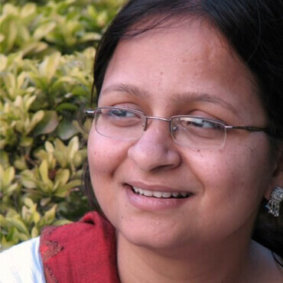
Amrita Sharma
Amrita Sharma leads the Centre for Migration and Labour Solutions (CMLS) team, supervising its research studies, policy advocacy function, and its teaching and networking initiatives. She brings 11 years of experience in field research, training and programme incubation support to Aajeevika Bureau. Prior to Aajeevika, Amrita worked at IWMI-Tata Water Policy Programme. Amrita holds a degree in rural management from IRMA, Anand, and a Masters in Public Policy and Development Studies from CEU, Budapest and ISS, The Hague.
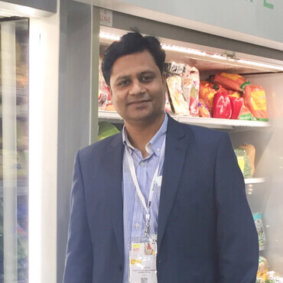
Anjaney Bhutada
Anjaney Bhutada is Director of Fresh Produce Value Addition Services, Mumbai that owns Go4Fresh brand, and Director & Partner at Aligned Business Partners. He is a Co-founder of Krishi Pragati Foundation, a non-profit organisation focused on developing direct market linkages for farmer groups. He has more than 19 years of leadership experience in Business Strategy & Process, Fresh agri produce and food supply chain, Retail, E-commerce. He has created/ participated in the building new business organizations in key leadership roles and demonstrated track record of managing cross-functional projects with concrete results. He has extensive experience in business conceptualization and execution, customer-facing roles, deal-making across various industries like retail, E-commerce, fresh agri produce, agri produce marketing, etc. He is also an angel investor and advisor for start-ups in related domains.

Anup Dhar
Anup Dhar is Professor in Philosophy, School of Liberal Studies and Director, Centre for Development Practice, Ambedkar University Delhi, India. His co-authored books include Dislocation and Resettlement in Development: From Third World to World of the Third (Routledge, 2009), and The Indian Economy in Transition: Globalization, Capitalism and Development (Cambridge University Press, 2015). His co-edited books include Breaking the Silo: Integrated Science Education in India (Orient Blackswan, 2017), Psychoanalysis in Indian Terroir: Emerging Themes in Culture, Family, and Childhood(Lexington Books, 2018) and Clinic, Culture, Critique: Psychoanalysis and the Beyond (forthcoming: Orient Blackswan, 2018). He is a member of the Editorial board of Rethinking Marxism (http://rethinkingmarxism.org/) (2016-19). He co-edited the special double Issue of Rethinking Marxism titled “Marxism and Spirituality” Vol. 28, No. 3-4 (Routledge, 2016).
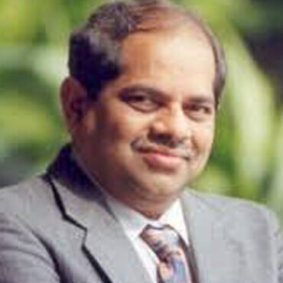
Ashank D. Desai
Mr. Ashank D. Desai co-founded Mastek Limited in 1982 and served as its Advisor since July 1, 2010. Mr. Desai served as Executive Chairman and Managing Director of Mastek Limited until January 16, 2007. After working with Godrej and Boyce for six years, he co-founded the Mastek GmbH. Mr. Desai is an expertise in specific functional area: Planning & strategy, corporate governance initiatives and active in other CSR initiatives of the Mastek. He is the Founder of NASSCOM and served as its Chairman. He serves as a Member of Advisory Board at IvyCap Ventures. Mr. Desai has been a Non-Executive Director at Mastek Limited since June 6, 1982 and Non-Executive Independent Director at NRB Bearings Ltd. since March 2016. He serves as a Director of MajescoMastek, Mastek (UK) Ltd., Majesco Software Inc., Mastek GmbH, Keystone Solutions Private Limited, System Task Group International (India) Pvt. Ltd. and Info Tech Corporation of Goa Ltd. He served as a Director of Majesco Entertainment Co. until June 26, 2015 and Majesco since 2012. Mr. Desai holds B.E. from the Mumbai University, M.Tech. in Mechanical Engineering from Indian Institute of Technology, Mumbai and did his PGDM from the IIM Ahmedabad in 1979.
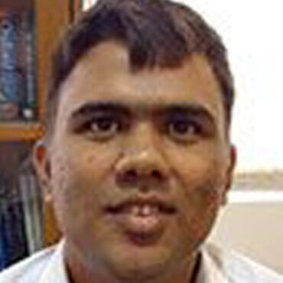
Avinash Kishore
Avinash Kishore joined IFPRI in September 2012 as a Post-Doctoral Fellow after completing his PhD in Public Policy from Harvard University. He obtained Masters in Public Affairs from Princeton University before joining the PhD program. Avinash studied at IRMA and worked for four years with International Water Management Institute (IWMI) before going to the US for higher studies.
Avinash is interested in agriculture, environment, and development economics. At IFPRI, he works on projects that seek to bridge the gap between laboratories and farms in Indian agriculture using action research in collaboration with agricultural universities, agribusiness firms and farmers.
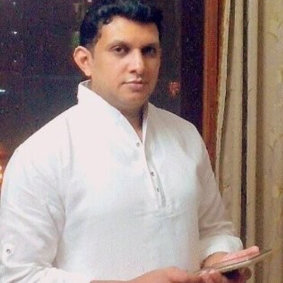
Benjamin Mathew
Benjamin Mathew is a post graduate in management and finance with 18 years of industry experience. He has been heading in the area of strategy consulting in Emerging Markets at MART. The focus of work includes creating Sustainable Business Models & Low cost distribution solutions. Some of the notable work in which he was instrumental in restructuring the social marketing organization involved in health delivery in Nepal to become a sustainable organization from funded one. He also created the last mile distribution model based on youth entrepreneur for a corporate sector organization reaching the products up to 500 pop villages. He created the working concept of aggregating small retailer orders in rural through a technology platform, locally sourcing the materials through an independent franchise and service these outlets at ultra-low cost. He has got experience of working in south Asian & African countries particularly Bangladesh, Nepal, India, Sri Lanka and Nigeria. He has been a visiting faculty on Rural Marketing for top B- Schools in India.
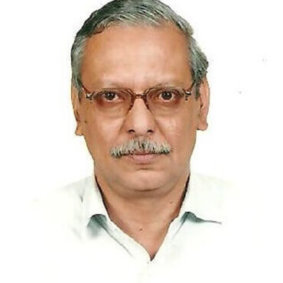
Biswajit Sen
Biswajit Sen retired as Senior Rural Development Specialist from the World Bank and has over 35 years of experience in rural livelihoods, community-led development and institutional development. He has worked on varied assignments with World Bank, UNICEF, MacArthur Foundation USA and Swiss Development Cooperation (SDC) of Government of Switzerland. He was one of the initial members of PRADAN and has founded many other development organisations such as GDS, Nalanda and Iimpact in the field of rural development.
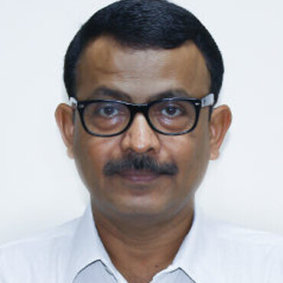
Debiprasad Mishra
Debiprasad Mishra is a Fellow of the Indian Institute of Management, Ahmedabad. He served in the faculty of the Institute of Rural Management, Anand (IRMA) for 26+ years. He has been a career academic, teaching courses in the General Management and Marketing areas, with an emphasis on rural management. He has over 10 publications in national and international peer-reviewed journals. He was the coordinator, editor and lead author of two rounds of State of Panchayats Report – An Independent Assessment, published by the Ministry of Panchayati Raj, Government of India. He has also authored many consulting research reports and has designed and facilitated a good number of mid-career education programmes for functionaries of government and non-government organisations, and cooperative enterprises. He had a two-year stint as the Executive Director of Gram Vikas, Odisha. At present he leads a new initiative, i.e., Real Utopia – Re-imagining Institutions, Organizations and Practice, based at Bhubaneswar.
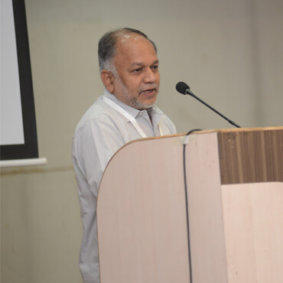
Girish Sohani
Girish Sohani is the President and Managing Trustee of BAIF, Pune. A graduate from IIT Bombay and IIM Ahmedabad, he had held numerous port-folios across development sector in India and Abroad for about four decades. He has been in strategic planning, coordination and backup support to farmer-managed community irrigation schemes, project planning and execution of development projects for generation of rural livelihoods, monitoring of research projects in renewable energy technologies, etc. He has been closely involved in developing a holistic development programme concept in the form of BAIF’s Tribal Rehabilitation Programme. The rehabilitation programme focuses on generating opportunities for gainful self-employment for the tribal families in the vicinity of their hamlets. This is achieved through need-based programme components to utilize the resource and skill base and upgrade it through injection of Science and Technology. The programme touches diverse facets of the tribal life ranging from livelihood to health, and habitat to community organization.
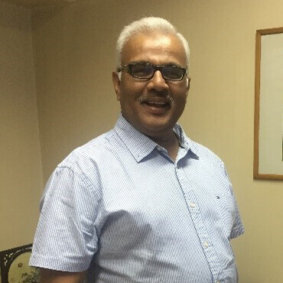
Hemant Mehta
Hemant Mehta is Managing Director, at Kantar IMRB and Chief Strategy Officer, Kantar South Asia. A consumer behaviour and media observer for the last three decades, he has seen and tried to cope with continuously evolving consumers and media panorama. Market research has been his love and professional calling. He has worked on several product categories and large-scale and complex continuous measurement projects across a range of sectors- FMCG, Media, and Retail. He has been studying rural consumers since 1992 when he set up the Rural Purchase Panel to monitor the purchases of FMCGs. In 2010, he conceptualised STAR – a study which focusses on rural consumers’ attitudes & values, their product and brand consumption habits and their media touch points. A regular speaker at industry fora, he has also authored and presented Papers at various symposia.
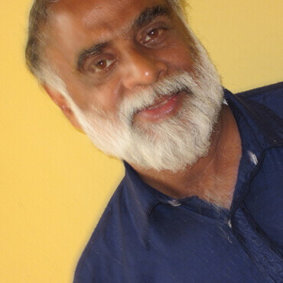
Madhukar Shukla
Madhukar Shukla is a professor of organisation behaviour and strategic management at XLRI, Jamshedpur, India. A Ph.D. in psychology from the Indian Institute of Technology, Kanpur, he earlier taught at the Administrative Staff College of India (ASCI), Hyderabad, and was a consultant (HRD) with the National Productivity Council, New Delhi. During 1993-1994, Madhukar was a visiting professor at Escuela Superior de Administracion y Direccion de Empresas (ESADE), Barcelona. Madhukar has more than 20 years of consulting and training experience. His clients include American Express, Bharti Enterprise, Hindustan Lever Ltd., GE India, Infosys Technologies, ITC Ltd., Larsen & Toubro, Mahindra & Mahindra, Novell Software, Oracle India Ltd., Sasken Technologies and Timken Ltd. His professional interests include cross-cultural management, knowledge management and learning organisation, management of creativity and innovation, organisation design and strategy and organisational change and transformation. He has contributed more than 30 papers to professional journals and published two books—Competing Through Knowledge: Building a Learning Organisation (Response Books, Sage Publications, 1997) and Understanding Organisations (Prentice-Hall of India, 1996).

Manoj Kumar
Manoj Kumar is a Senior Advisor to the Tata Trusts with executive responsibility for university partnerships and the innovation portfolio. He is also the architect of Social Alpha, an ecosystem stack that aims to provide full lifecycle support to social innovators and entrepreneurs. Manoj serves on the advisory and governing boards of a number of companies, including a few non-profits and research institutions. He has been an entrepreneur as well as an angel/seed investor with about 15 startups in his current portfolio. He has also worked for over two decades in application software and financial services firms, playing global leadership roles, mostly in the areas of Corporate Strategy, M&A, Business Development, R&D, Innovation, and Product Management.
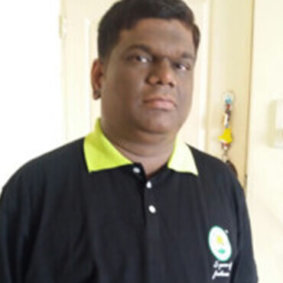
Maruti Chapke
Maruti Chapke is the Founder Director of Fresh Produce Value Addition Services, Mumbai that owns Go4Fresh brand. He completed his B.Sc (Agri) from College of Agriculture, Pune followed by M.Sc (Agri Economics) from Doctor Panjabrao Deshmukh Krishi Vidyapeeth and MBA from MANAGE, Hyderabad. He has a diverse experience of working with HDFC Bank-agri commodity finance division, followed by Reliance Retails and Future Retails Ltd. where he was a core team member for establishing fresh produce business for top two retailers big bazzar and reliance fresh in India. He is also a founder member of job portal www.connectagri.com dedicated for jobs in agri and rural business.
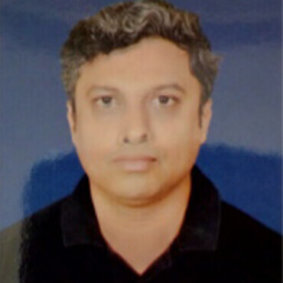
Nirmalya Choudhury
Nirmalya Choudhury is an Associate Professor at Tata Institute of Social Sciences. Choudhury’s research interests have moved around water and rural livelihoods, water policy and governance issues, irrigation sector reform, Participatory Irrigation Management, social and environmental safeguards and hydropower development. In recent years he has been working on floods and development in the recurrent flood prone areas in the Ganga-Brahmaputra river basin. In the past he has worked on issues pertaining to hydropower development in the Himalayas, social and environmental standards and community mobilisation.
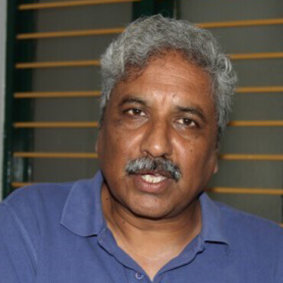
Rangu Rao
Rangu Rao is currently the CEO of Safe Harvest Private Limited (SHPL). SHPL works closely with 24 farmer produer organisations located in some of the most difficult geographies across 11 states of the country. He is a leading Indian development professional with more than 25 years of experience of working in some of the most challenging, tribal, drought prone, backward areas of the country and is co -founder of Samaj Pragati Sahayog (SPS). Rangu Rao has combined 25 years of living and working at the grass-roots with policy advocacy, deeply informed by his endeavours in the field. In recognition of his expertise in the field, the Government of India invited him to Chair the Working Group on Mahatma Gandhi National Rural Employment Guarantee Act (MGNREGA) as part of the preparation for the 12th Five Year Plan. His Group’s recommendations formed the basis for the radical makeover of the programme in the form of MGNREGA 2.0, with a central emphasis on durable asset creation for sustained water security and improved rural livelihoods and productivity. He was also a member of the Programme Advisory Group till 2014 set up by the Ministry of Rural Development, Government of India, to ensure better implementation of MGNREGA 2.0
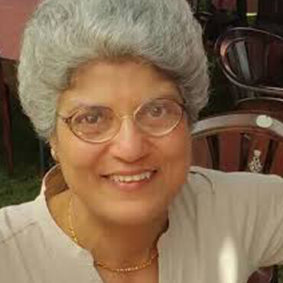
Roda Mehta
Roda Mehta had played a pioneering role in establishing scientific media planning and buying in India. Mehta joined Hindustan Thompson Associates in 1971 and became the first MBA and first woman in the Media function of an Indian advertising agency. She moved to Ogilvy Benson & Mather in 1975, handling several media positions there. Along the way, she pioneered outdoor planning and buying and set up a rural media network to service client requirements. Roda Mehta bagged several prestigious awards including the David Ogilvy Award for Asia Pacific & Agency of the Year Award (Public Service) 1992 for the National Literacy Mission campaign. She was awarded the AAAI Lifetime Achievement Award in 2017. Currently she is associated with several non-profit organisations as a Trustee of the Lila Poonawalla Foundation; Board Member & Treasurer of Nagrik Chetna Manch, a citizen’s watchdog organization on public expenditure.

Saroj Kumar Mohanta
Saroj Kumar Mohanta is the Director of Ecociate Consultants Private Limited. He is a marketing professional with expertise in Rural Market Research, Consumer Insights and Innovation, Saroj has been working in the Emerging Markets for more than two decades. He specializes in ethnography research and applied ‘User Centric Research Design’ to ‘rural markets’ in India and other countries. He has contributed to development of product and process concepts which have driven Innovation in rural markets for Companies and Social Enterprises. Some of the well documented Product Innovation cases have been Baby Warmer for GE healthcare, Advanced cook stoves for Shell Foundation and SME services concept designed for Bangla Link, a Telecom major in Bangladesh. He has also conceived, designed, piloted and scaled Process Innovations in ‘Last Mile Healthcare Delivery’ in business models like Arogya Parivar for Novartis and Bhaichara for Baxter, both Pharma companies.
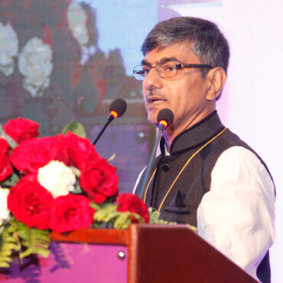
Satyajit Majumdar
Prof. Satyajit Majumdar is has graduated in Electrical and Industrial Engineering, and later obtained post-graduate degree in Management, Appli ed M. Phil. and PhD. He is also a Fellow o f Institution of Engineers (India). Presently as Professor and Chairperson of Center for Social Entrepreneurship of the School of Management and Labour Studies at Tata Institute of Social Sciences (TISS), Mumbai he teaches entrepreneurship, social entrepreneurship, strategic management, strategic human resource management, growth and technology strategy, corporate social responsibility and service operations management. With more than 33 years of experience, he is also consultant and corporate trainer in the fields of Entrepreneurship, Social Entrepreneurship, Growth and Strategy, Strategic Corporate Social Responsibility and Strategic Human Resource Management and mentors entrepreneurs and start-up organizations. He has been actively engaged in expert groups at national and international levels to provide guidance in academic program design and implementation including teaching and research, skill development, entrepreneurship development, livelihood creation and micro and small business management. In 2009, he was conferred Galpin International Research Fellowship by the Quinnipiac University, USA. Prof. Majumdar has many research papers and award winning case studies to his credit, published in national and international journals and edited volumes. His research interest area is ‘growth strategy in entrepreneur managed small and medium business organization’ and strategic CSR.
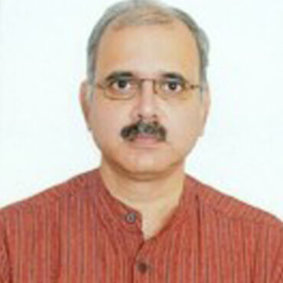
Shambhu Prasad
Shambu Prasad Chebrolu’s expertise in social studies of science or the relation between science, technology and society (STS), especially innovation at the margins. He currently works at the General Management Strategy and Policy Area, Institute of Rural Management Anand (IRMA) where he coordinates ISEED – IRMA’s incubator for rural and social enterprsies. His interests are in social innovation, innovation management, social entrepreneurship, social and collective enterprises, and public systems management/ public policy making. He is involved in generating and incubating new knowledge through networks of academics and practitioners in agroecokogy (System of Rice Intensification or SRI), rural livelihoods, social innovation and peoples or citizen science.
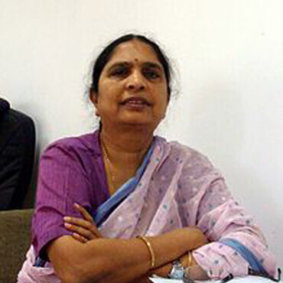
Shantha Sinha
Shantha Sinha is an anti child-labor activist of international repute and presently in her second term as Chairperson of the National Commission for Protection of Child Rights (NCPCR). Known for her pioneering work in child rights, she is the founder of the MV Foundation.A Professor in the Department of Political Science, Hyderabad Central University, she won the 2003 Ramon Magsaysay award for community leadership. She has also been awarded the Padma Shri and the Albert Shankar International Award from Education International.
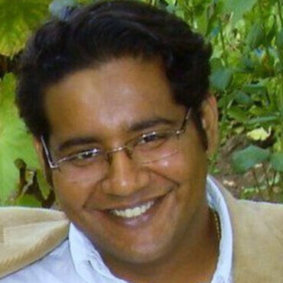
Shilp Verma
Shilp Verma is an independent consultant. Shilp has been associated with IWMI since 2001. The main areas of his research include groundwater governance, energy-irrigation nexus, river basin management, community management of water resources, water-food-trade policies, smallholder farming in South Asia and Sub Saharan Africa.
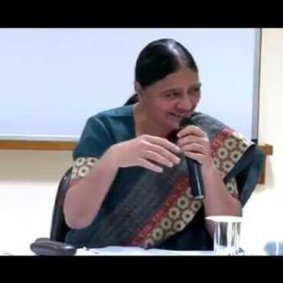
Sudha Kothari
Sudha Kothari is a Member of Board of Trustees at Microsave India Private Limited. She is also the Managing Trustee of Chaitanya, an NGO that she founded in 1993 with its operational headquarters in Rajgurunagar, Pune District. She continues to manage the activities of Chaitanya in more than 200 villages as the Honorary Managing Trustee. She has extensive grassroot level experience and her vision has enabled Chaitnya to reach out to more than 20,000 rural women through 1400 SHGs (Self Help Groups) in more than 200 villages in three Talukas of Pune District. A keen researcher, She has to her credit, various dissertations and research papers on the empowerment of women. A recipient of several awards and citations, she is on the Executive Committee of the Yashwantrao Chavan Academy of Development Administration, Pune and on the Governing Board of Friends of Women’s World Banking and Sa-Dhan. She serves as a member of the State Level Review Committee of SHG – Bank linkage programme and is a Trustee for the MicroSave India Foundation. She brings a strong gender focus to the working of MicroSave. She is a doctorate in Sociology.
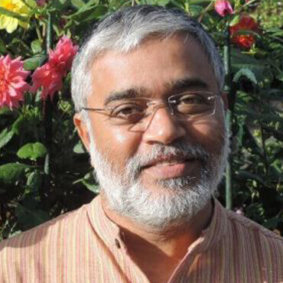
Suresh Kumar
Dr. Suresh Kumar is an anesthesiologist by training but well known as palliative care expert. He has established the community-based palliative care model in Kerala. He started the Institute of Palliative Medicine (IPM) in Calicut which is a WHO collaborating center for this sub-continent. Apart from being an academician and a practitioner, he is helping various state governments to establish policies around palliative care.
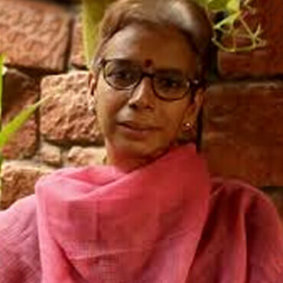
Sushma Iyengar
Sushma Iyengar is a social activist and a recipient of ‘Gondhia Award for Social Work’ in 1996, by Young Men’s Gandhian Association. She did her Masters in Literature from MS University, Baroda and a three year Masters’ programme in the USA at Cornell University. She has founded and led Kutch Mahila Vikas Sangathan, as an organization of rural women, and initiated processes for mobilizing, organizing and training rural women, as well as organization building. This is an organization dedicated to improve the plight of women in Kutch. Her other organizations, SETU – a network of 18 grass root, resource facilitation centres in clusters of 15-20 villages across the district of Kutch, K-LINK – an information communication technology organization which works to make ICTs accessible, and applicable to developmental needs, and Khamir, works on empowerment of craftspeople. She leads through her transformative action in the area of gender justice, cultural identity, traditional livelihoods, and local governance. Other concerns like Ms Iyengar is also a Co-founder of Kutch Nav Nirman Abhiyan – commonly known as Abhiyan – a District Network of developmental, civil society organizations in Kutch District, Gujarat State. She is a Recipient of ‘Gondhia Award for Social Work’ for 1996, by Young Men’s Gandhian Association and many other national and international recognition.
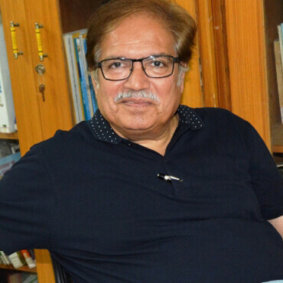
Tushaar Shah
Tushaar Shah, an economist and public policy specialist, is a former director of the Institute of Rural Management at Anand in India. Over the past 35 years, Shah’s main research interests have been in water institutions and policies in South Asia, a subject on which he has published extensively. His notable contributions have been in comparative analyses of groundwater governance in South Asia, China and Mexico. More recently, his interests have lay in comparative analyses of water institutions and policies across Asia and between South Asia and Sub-Saharan Africa. Shah has also worked extensively on energy-irrigation nexus in India. Shah was honored with the Outstanding Scientist award of the Consultative Group of International Agricultural Research (CGIAR) in 2002. Shah serves on the boards of several academic institutions and NGOs and is a director on the board of the ICICI Bank.
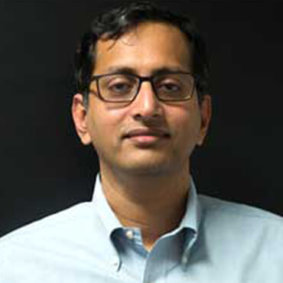
Venkataramanan R
R Venkataramanan (Venkat) is the Managing Trustee of the Sir Dorabji Tata Trust and is responsible for management and oversight of all the Tata Trusts. The Tata Trusts are public charities and are the principal shareholder of Tata Sons, the parent company of the Tata group, India’s largest conglomerate. He has over 20 years business and operations experience in the areas of finance, business support and strategy. For several years, he was Executive Assistant to Mr Ratan Tata, the former Chairman of the Tata group. Prior to his association with Mr Tata, Venkat was Head of Business Support at the Qatar Foundation, a non-profit based in Doha. He had also worked in Videsh Sanchar Nigam Limited, Mumbai (VSNL), now known as Tata Communications and the Gujarat State Finance Corporation based in Ahmedabad.

Conference Venue:
BAIF Campus, Mumbai-Bangalore Highway, Warje, Dr. Manibhai Desai Nagar, Pune - 411058, Maharashtra

VAF Address:
6th Floor, Galore Tech Park, LMD Chowk, Bavdhan, Pune- 411021, Maharashtra, India www.vikasanvesh.in
